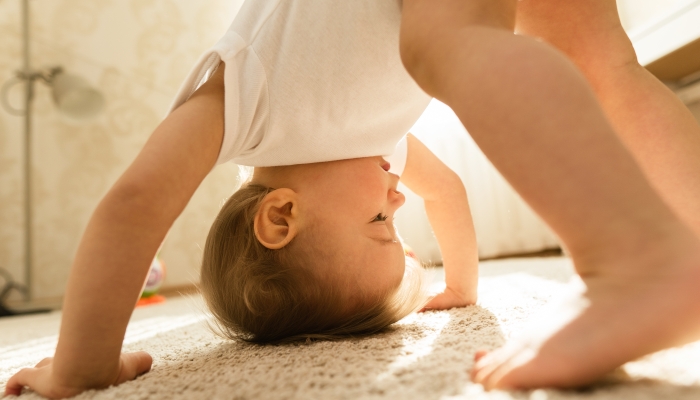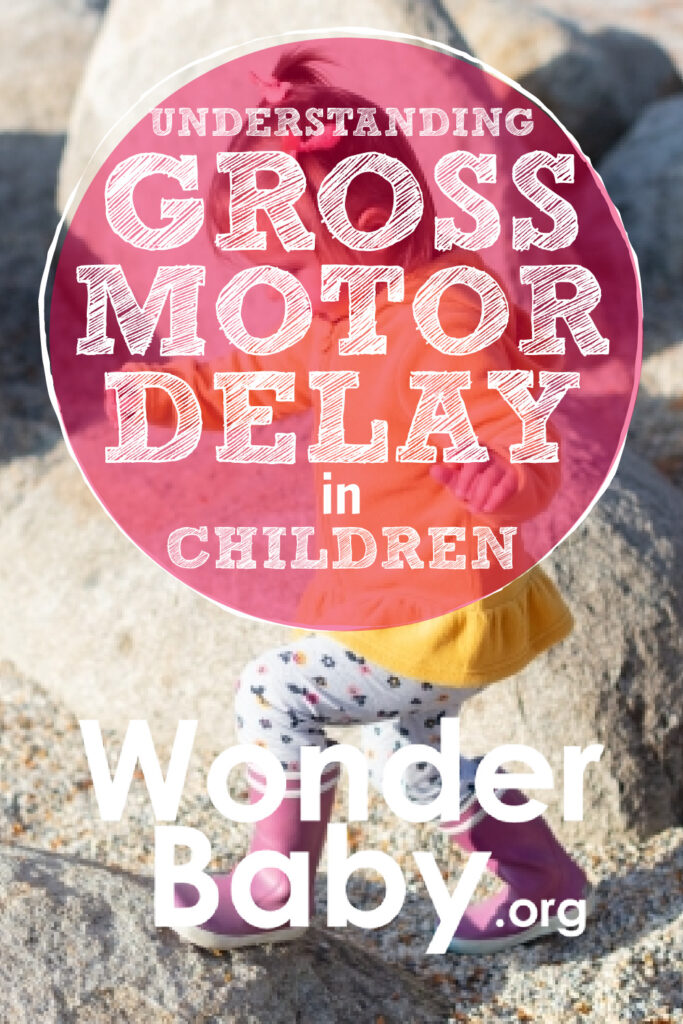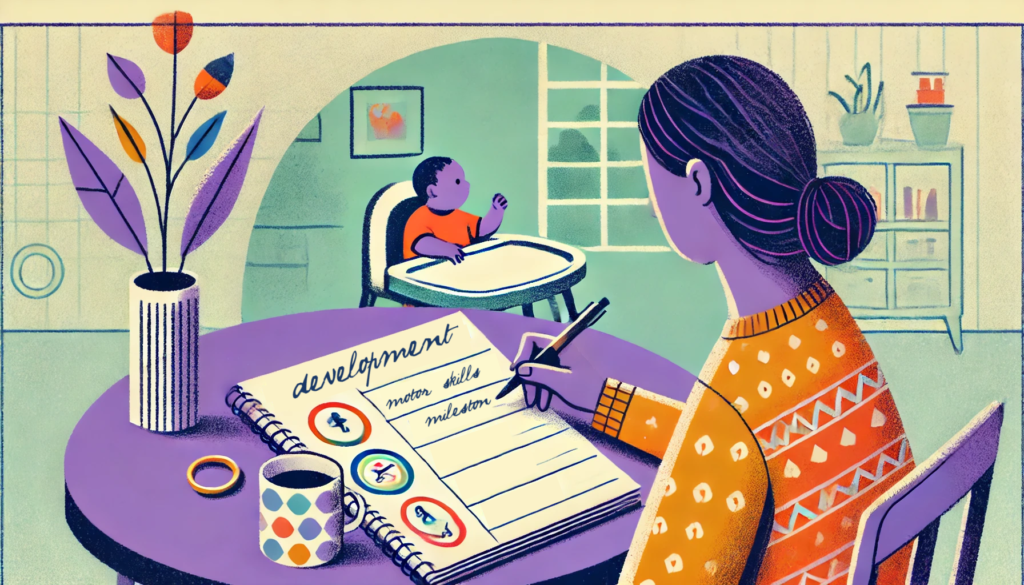Understanding Gross Motor Delay in Children

- A gross motor delay is a term used when children do not meet gross motor milestones within a certain time frame.
- Children with gross motor delays may have stiff or loose muscles.
- Gross motor delays can be part of a global developmental delay.
- There are several causes of gross motor delays.
- Early interventions help children to improve their gross motor skills.
Many parents worry when their children don’t hit developmental milestones within a certain age range. When my youngest child still wasn’t walking at 15 months, I knew something wasn’t right. So, I shared my concerns about her multiple delays with our pediatrician.
He completed an examination to determine what might be going on. Eventually, we learned that my child has cerebral palsy, a common cause of gross motor delay in children.
Since then, I learned a lot about gross motor delays. I also learned that there are many great treatment options for children like my daughter. With early intervention and the right care, recovery from these early childhood conditions can be possible.
What is Gross Motor Delay?
Motor skills relate to how a person’s muscles move to complete a specific function. As a baby grows and develops, its muscles gain the strength to perform certain tasks. They start sitting up, walking, or holding a spoon in their hand. These motor skills fall into two categories: gross motor skills and fine motor skills.
Gross motor skills are usually whole-body movements that involve large muscles. Some gross motor functions include rolling over, sitting upright, and walking. Fine motor skills, on the other hand, are those using the small muscles in the hand and wrist such as clapping, picking up a piece of food, or turning a page of a book.
Sometimes, a child doesn’t meet gross motor milestones like other children. When this happens, doctors may look for possible problems with the child’s gross motor development.
A gross motor delay is a catch-all term medical professionals use for children who do not meet specific gross motor milestones. A doctor can diagnose a child with a gross motor delay during infancy or the toddler years when milestones are missed. A physical evaluation and discussion about your child’s milestones are used by your doctor to determine a diagnosis.
In some cases, children exhibit developmental delays in all areas. This is called a global developmental delay. Other times, children only experience gross motor delays but still meet milestones for speech and fine motor skills.

Signs of Gross Motor Delay
Every baby hits developmental milestones at different times. In general, though, infants and toddlers master specific gross motor skills within a certain age range.
| Age | Gross Motor Milestone |
| 4 months | Rolling from front to back |
| 6 months | Rolling from back to front Sitting unassisted |
| 9 months | Moving from lying to sitting without help Standing with assistance Pulling up on furniture |
| 15 months | Standing and walking independently |
| 18 months | Walking up and down stairs with assistance Running independently |
| 2 years | Runs, skips, and jumps Bending over and returning to standing without falling |
Slight delays on some gross motor milestones aren’t always a cause for alarm. Some babies just master certain skills later than others. However, missing multiple developmental milestones typically indicates a cause for concern.
Furthermore, some infants and toddlers show other signs of motor delays, such as:
- Stiff muscles
- Loose trunk and limbs
- Limited movement in the legs
- An inability to bear weight on feet and/or legs
If you have any concerns about your child’s development, use the American Academy of Pediatrics Motor Delay Tool. It will help you determine if your child has gross motor delays.

Causes of Gross Motor Delay
Gross motor issues may stem from underdeveloped muscle groups. They can also be a result of muscle strength issues or low muscle tone. They may occur alongside cognitive delays or as part of a global developmental delay, but not always. Ultimately, it depends on the specific cause of the motor delays.
In general, there is not a singular cause for all gross motor delays. However, some causes of gross motor delay include:
- Premature birth, particularly if accompanied by health complications
- Developmental conditions, such as autism spectrum disorder
- Neurodevelopmental disorders, such as cerebral palsy
- Rare diseases or genetic disorders, such as Down syndrome
- Environmental conditions that impede gross motor development
Once a gross motor delay diagnosis is made, your doctor will perform testing to identify a cause behind your child’s developmental delay. This will help you and your child’s doctor determine the best course of treatment to meet your child’s developmental needs.
Gross Motor Delay Treatment Options
Gross motor skills are critical for your child’s overall development. Thus, early intervention is key. Doctors will begin treatment for children as soon as they identify developmental delays.
Common treatment options for gross motor delays include:
- Physical therapy
- Occupational therapy
- Sensory-processing therapy
These treatment options help children strengthen their muscles and practice skills to help improve their gross motor function. Toys or assistive equipment can be used to improve muscle tone and function, and children may attend sessions up to 3 times per week.
In some cases, your pediatrician may also refer your child to other specialists, such as neurologists or orthopedists for children with cerebral palsy. These specialists may recommend additional treatment options to support your child’s development.
Receiving a gross motor delay diagnosis may seem overwhelming at first. However, treatments can help your child catch up to his peers.

The information WonderBaby provides is not intended to be, and does not constitute, medical or other health advice or diagnosis and should not be used as such. Always consult with a qualified medical professional about your specific circumstances.
Related Posts

Development, Special Needs
How to Track Milestones for Developmentally Delayed Babies
Parents of developmentally delayed babies can explore practical tools and strategies to track milestones, celebrate progress, and support their child’s unique developmental journey.

Fine and Gross Motor
5 Alternatives to Tummy Time for Babies with Motor Development Challenges
Does your baby struggle with tummy time due to motor development challenges? These alternatives to tummy time will offer the same benefits.

Development
Should Twins Share a Room?
Wondering if your twins should share a room? We’ll explore the pros and cons of room-sharing for twins right here before you make your decision.